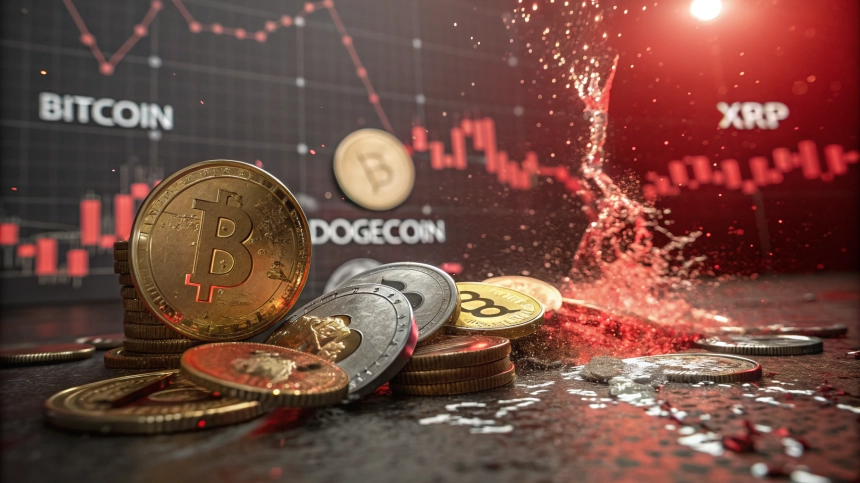This week, the cryptocurrency market approached a total market capitalization of $4 trillion, achieving a historic milestone. This was driven by rallies where Bitcoin, Ethereum, and several altcoins reached all-time highs. The upward trend continued as investor enthusiasm and institutional adoption increased.
Amidst this strength, a prominent cryptocurrency market observer and writer raised sharp criticism of the cryptocurrency industry. He expressed concerns about the industry's integrity and long-term viability.
Expert Cryptocurrency Criticism: Risks to Industry Credibility and Long-Term Survival
Omid Malekan, an adjunct professor at Columbia Business School, publicly criticized the cryptocurrency industry in a detailed post on X (formerly Twitter), raising several concerns.
His argument focused on three key points. First, he claimed that many cryptocurrency projects are driven by team profit motives rather than a commitment to decentralized solutions and innovation.
Malekan particularly emphasized that projects that raise substantial funds often tend to lose their original vision. He explained that raising massive capital can ultimately become an obstacle that deviates from decentralization.
"Raised funds have a negative correlation with long-term success. The data is clear. Bitcoin raised no funds, Ethereum raised slightly (by modern standards), and Punk was free. Meanwhile, there are many projects that raised hundreds of millions or billions of dollars but achieved nothing." – Omid Malekan, Adjunct Professor at Columbia Business School
Additionally, Malekan pointed out conflicts of interest, especially in projects that raise funds through both tokens and stocks.
He suggested that this dual funding approach often leads to decisions that benefit insiders. This undermines trust and weakens the project's long-term potential.
"The most likely motivation of central players contributing to public financial vehicles (founders, institutes, foundations, whales) is a back door exit liquidity. Tokens are traceable, but stocks are not. Venture capitals (in most cases) encouraging projects to token are more interested in making money for LPs as quickly as possible rather than funding successful long-term projects." – Omid Malekan, Adjunct Professor at Columbia Business School
Second, Malekan emphasized the widespread market manipulation problem. He cited practices such as pump and dump schemes, inflated Total Value Locked (TVL) indicators, and suspicious Staking mechanisms.
He argued that these tactics artificially inflate project values and mislead investors about the health and adoption of specific platforms.
"Every meme coin fan or philosopher is one chat group away from coordinating the next pump and dump scheme (many do it themselves)." – Omid Malekan, Adjunct Professor at Columbia Business School
Third, the author expressed skepticism about the increasing number of new Layer 1 (L1) blockchains and Layer 2 (L2) solutions entering the market.
According to him, launching new L1 blockchains is often unnecessary. He believes technological innovations can be integrated into existing chains or developed as L2 solutions.
"The most likely reason new projects (dApp, RWA, CEX going on chain, Web2 companies doing new Web3 work) choose a specific L1 or L2 is because they got money. Not because they like the technology." – Omid Malekan, Adjunct Professor at Columbia Business School
He also criticized the increase in permissioned blockchains, viewing it as a form of 'innovation theater'. He emphasized that this hinders public blockchain adoption.
Meanwhile, Malekan left particularly sharp criticism for the DeFi protocol Ondefy, describing its operations as 'suspicious'.
"A few years ago, I saw one of the founders publicly wondering if all Ethereum stakers should get broker-dealer licenses. That is the least cypherpunk thing I've heard. Even Zenzler didn't believe that." – Omid Malekan, Adjunct Professor at Columbia Business School
The professor's statements sparked discussion within the cryptocurrency community, with several industry leaders agreeing with his views.
"I don't know this person Omid, but his words have a lot of meaning. There is a lot of fraud and fraudulent behavior in cryptocurrencies. That's why most of us have been demanding reasonable regulation for this space. We want the technology to thrive." – MetaLawMan
Agree with most all of this, I would add:
— Sterling Crispin 🕊️ (@sterlingcrispin) July 25, 2025
Be weary of people rebranding coins to memecoins or Culture Tokens or Internet Capital Markets or AI Tokens etc, if it's just a token on an AMM with an exponential price then it's the same zero sum game and most buyers will get wrecked.
Therefore, while the cryptocurrency market celebrates its latest milestone, Malekan's warning serves as a sober reminder of the challenges faced. With investor confidence high, it remains to be seen whether cryptocurrency stakeholders can address these criticisms and realize a decentralized and transparent financial future.






